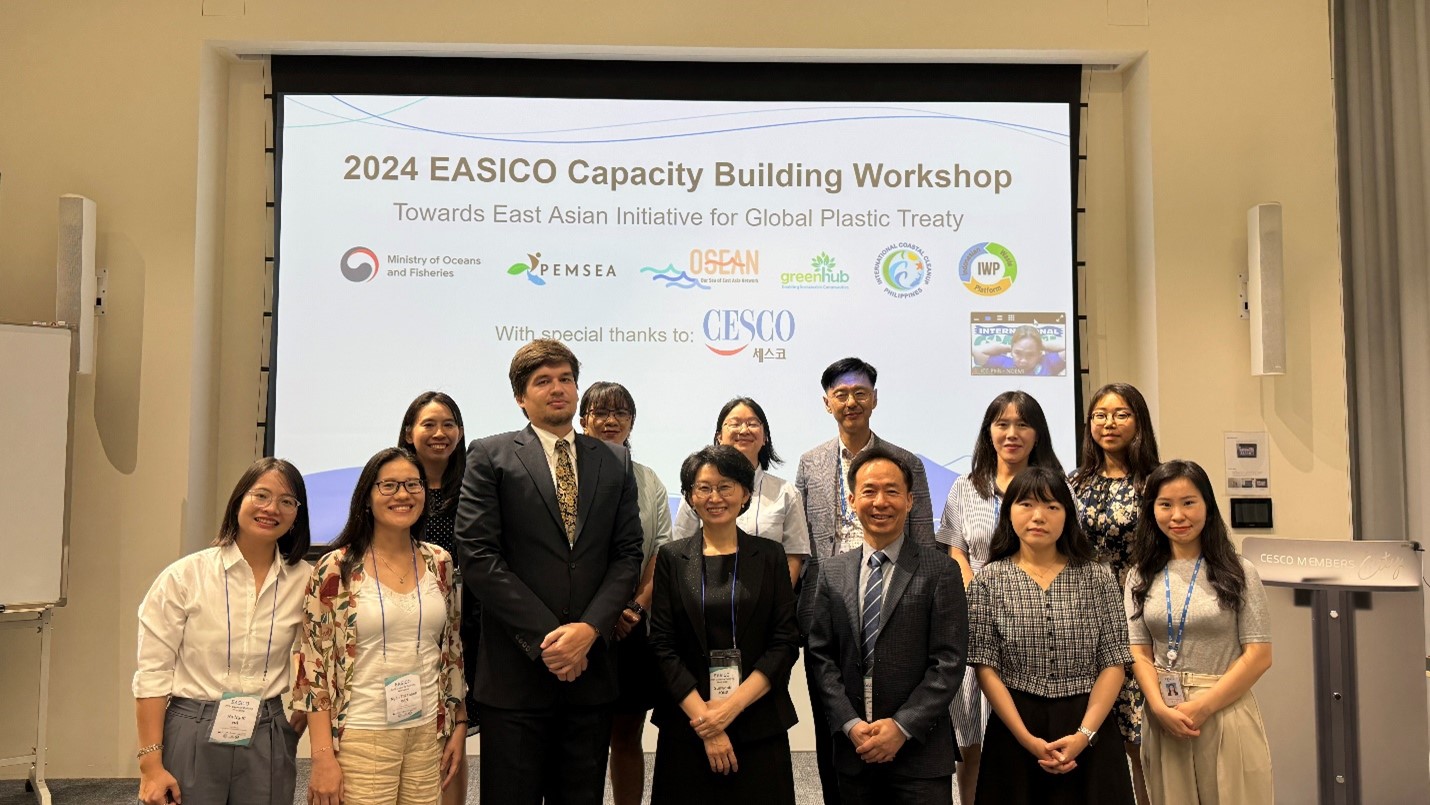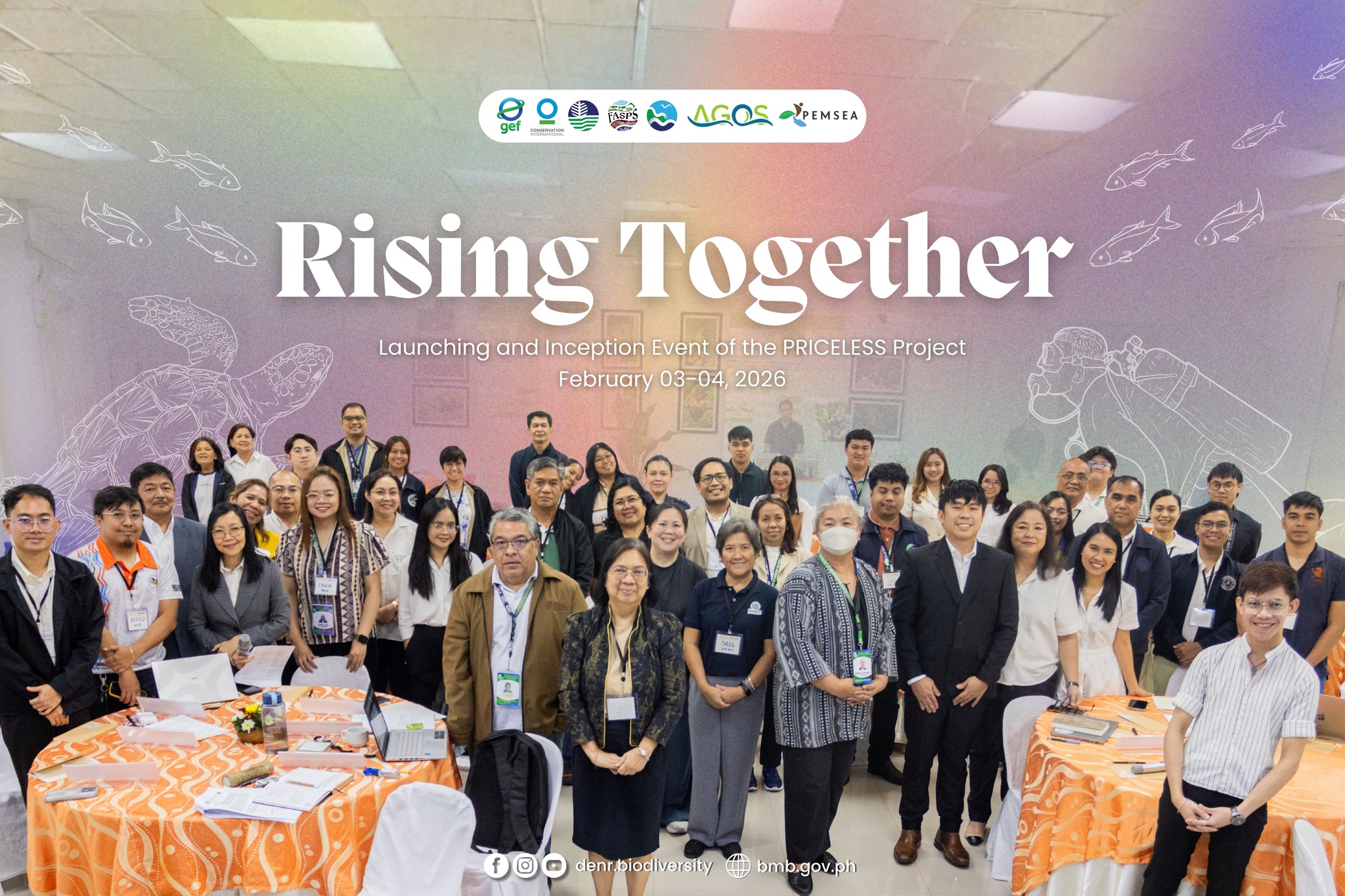Final international event of the EASICO Project
Monday, 29 July 2024

PEMSEA recently participated in the final international event of the EASICO (East Asian Seas Initiative on Clean Oceans) project. EASICO is a joint initiative to work across different countries to improve waste management and reduce the marine plastic pollution burden of the region. In addition to PEMSEA, other directly involved stakeholders are the Ministry of Oceans and Fisheries (MOF), Our Sea of East Asia Network (OSEAN), the Indonesian Waste Platform (IWP), the Centre for Supporting Green Development (GreenHub), and International Coastal Cleanup Philippines (ICC Philippines).
EASICO Project bring together its regional partners, from RO Korea, Indonesia, the Philippines, and Viet Nam, to deliver projects that work to address marine debris through capacity-building and citizen science initiatives. The focus on citizen science and wider stakeholder involvement means that the achievements of the project stretch beyond just scientific data to enhancing public awareness and contributes to policy development.
The final event of the project was the 2024 EASICO Capacity Building Workshop. This was convened in partnership with CESCO, a leading sanitation and pest control company in RO Korea who are cooperating with OSEAN to detect, and eventually reduce, microplastics in commercial products. The discussions and collaborations during this event underscored the shared commitment to tackling marine litter and promoting sustainability in the East Asian seas. The workshop was held not only to present the achievements of the project over the past three years, but also to look towards the future and explore what lessons were learnt for effective regional cooperation.
One outcome across the project was lessons about dealing with plastic pollution by focusing on specific plastic waste items. OSEAN has long-term experience in this regard, having used results from citizen science beach monitoring to convince the RO Korean government to take action on polystyrene buoys that were often used for fishing. Resulting action saw a substantial reduction in the number of these buoys washing up on shores. During the EASICO project this effort was replicated to similar results in Viet Nam’s Ha Long Bay. Polystyrene buoys are a common waste item across the region, so such action has the potential to achieve more gains elsewhere. OSEAN is seeking to introduce the TEN2ONE initiative in the region, targeting the reduction of pollution from 10 frequently found marine debris items, something that may prove more actionable then targets on the more diffuse issue of marine plastics as a whole.
Another emergent theme was the handling of abandoned and derelict fishing gear. The biological impact of such gear is increasingly well known, but OSEAN shared another harm in the threat to shipping. Floating ghost gear creates navigational hazards, and OSEAN reported that fishing gear entanglement instances had affected every ship within the RO Korean navy at some point. Better management of such gear would therefore provide direct benefits to coastal communities relying on boats for fishing and other aspects of daily life, as well as reducing harm to coastal and oceanic ecosystems.
The importance of citizen science as a tool for marine management was a consistent theme throughout all presentations. Citizen participation in the beach cleanup in the Philippines was instrumental to the Philippines being recognized as the Cleanup Capital of the World from 2019 to 2021. EASICO initiatives in Indonesia have involved residents of island communities in waste cleanup and recycling, and an environmental learning center is being developed to provide further education and outreach. PEMSEA shared the value of having large-scale and compatible datasets, to improve knowledge and understanding that links local data to regional trends.
The event also featured a practical demonstration of the newly developed Ocean Knight waste camera app, allowing participants to experience and test its functionality firsthand. The app allows for the recording of litter through photographs, which can be taken ad-hoc or along transects. Location tagging and the identification of waste items allows any individual to contribute to identifying litter. The app is seeking to develop deep learning functionality to allow for the automatic recognition of waste items in submitted photographs.

Screenshot from the Ocean Knights app showing results from a test waste survey
The final day included a presentation and discussion regarding what lessons could be shared within the region that might help with regional input into the global plastic treaty from an Asian-Pacific perspective. Plastic waste is an issue that affects all of the interconnected crises of climate change, biodiversity loss, and pollution, and transitioning to a more circular plastics economy will help the regional and the world move towards a more sustainable feature that meets global goals.




